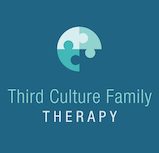As we all slowly venture out of our states of lockdown and re-emerge in our little social bubbles, one interesting theme of conversation keeps coming up. In these hazy and almost idyllic Summer days spent with our families many of us are secretly and somewhat guiltily feeling grateful for the unexpected gifts brought to us by the dreaded C word.
• A slowed down pace of life
• A chance to reconnect as families
• Stolen weeks with almost grown up children who’ve returned home from university or school for lockdown.
It seems indecent and unseemly to be enjoying any part of this unprecedented time, and yet it cannot be denied, many are managing to find moments of happiness and gratitude in the midst of all the suffering.
Yes, we are all concerned about the economic impact of this disease, and the implications for our collective future, and we are affected by the suffering of those who’ve lost loved ones, or their livelihoods. We’re just looking for the silver lining in an otherwise bleak and scary reality.

In addition to our gratitude-guilt, many of us are suffering the guilt of:
• Separation from loved ones in different countries.
• Family members who are ill, lonely and suffering mentally or financially, whilst we are powerless to offer meaningful assistance from afar.
• In worse case scenarios we’re suffering the loss of a loved one alongside the guilt of being absent from their bedside at the time they needed us most.
• Being working parents with young children, juggling working from home whilst simultaneously managing child-care and home schooling, and feeling guilty if we can’t manage it all well.
The additional downside is that work hours and home time have become blurred, and employees have a sense that they’re never off duty with emails and WhatsApps pinging their arrival late into the night.
So, should we feel guilty, and if not, how do we manage these contradictory emotions?
Nicola Jane, Family Therapist explains;
“Guilt is a feeling most of us are familiar with in our daily lives.
The Covid-19 crisis is a current context that has introduced this element into many of our lives. Guilt is generally regarded as a normal and appropriate emotion – not least a feeling and reaction that is necessary for social context. Additionally, guilt can be healthy, as it exhibits one’s ability to feel empathy. However, it’s relevant to discuss feeling guilty about specific situations so that we don’t allow those emotions to overwhelm our daily lives
How do we manage our guilt?
- Acknowledge that it’s okay to focus on the positives and enjoy them if we can.
- Know that it’s okay to say no to children when we need to. Remember it’s not the quantity of time with our children but the quality that’s important.
- Let our loved ones know that we love them despite our absence. We all know we would be there if we could.
- Apologize less, forgive yourself, and your guilt will diminish. It’s okay to feel the way that you do, and you’re not responsible for Covid-19.
- Don’t take on others’ guilt. Allow yourself to work through your own feelings, and don’t allow others to tell you how you feel or what you should be feeling.
Keep on looking for those silver linings and finding your moments of gratitude. It’s a healthy and healing mindset!

